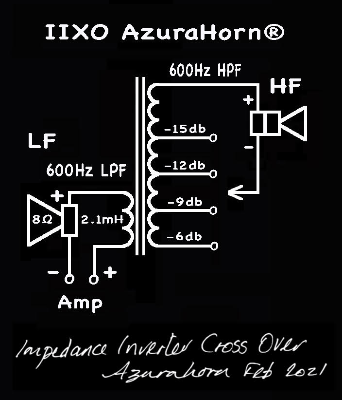 |
|
AZURAHORN
|
|---|
|
Maker of Acoustic Horns since 2001 |
|---|
| Homepage |
| Horns |
| Azura Horn System |
| Gallery |
| Ordering |
|
My Horn System |
|
I wanted a fully horn loaded system that would run off the low powered triode monobloc amps I build. The bass horn
expansion is 50Hz 0.6 Hypex. The 110 x 66 cm horn mouth is to the
Golden Mean and the L-shape length is 1.7m or 2.4m with the extension. Bass drivers are field coil Jensen A-12 from 1940s organs similar to TA-4165 made for WE by Jensen. On the short version I use Vitavox K15/40. This allows me to place a long AH-160 horn over the top. LM555 'receivers' are on 340 full roll back horns. The cross over is a iixo or Impedance Inverter Cross Over, my own design, see below. Fostex T900A tweeters on AH-1100 horns with a 2.2uF
Dueland cap in series provide the highs. Deep lows are provided by a 3.4m tapped horn which integrates well with the bass
horns, but is generally not needed.with the extended bass horn. The
iixo is nothing more than a series Low pass inductor with a secondary
winding feeding the upper driver. I call it the impedance inverter
crossover because the signal that appears across the primary is the
inverse of what is across the bass driver given that the output of the
amp is flat. (commonly called a subtractive xo). The transformer turns
ratio gives the required attenuation. A zobel is required across the bass driver. Subjectively it integrates the horns very
well, but has limitations. With a 1st order xo the
diaphragm excursion continues to increase below the xo point and
increases even more below the horn cut off. Not advisable for modern
compression drivers even at low power.
Field Coil Power Supplies The Jensen12A Field Coils are powered by a simple choke input tube rectifier supply. The field coils
incorporate a Humbucker coil. The LM555 field coils are powered by a Tungar choke input supply, or alternatively (in summer) 2 x 6V 110Ahr deep cycle batteries. A relay in the battery circuit isolates the batteries when the system is not on. Field coil and voice coil share the same magnetic field so signal and power supply is transformer coupled. However differences in sound are subtle. Selenium sounded great to me but run very hot. Schottky diodes sounded the same and make more sense. Both utilized the same hefty choke input circuit, perhaps this is the important thing. The WE555 FC specification of 6.3 - 7V is presumably for
a Lead Acid battery supply. The batteries would have
been charged with a Tungar supply. Probably they left the
charger on and kept the batteries on float. The
battery filtered the hum from the charger….

|
|
|
||
|
|
||
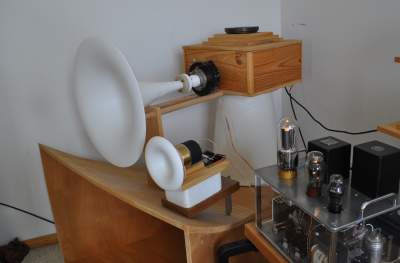
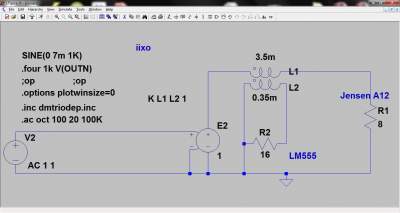 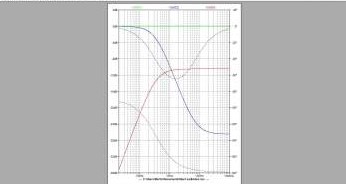
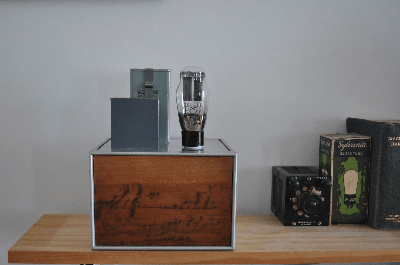
|
||

